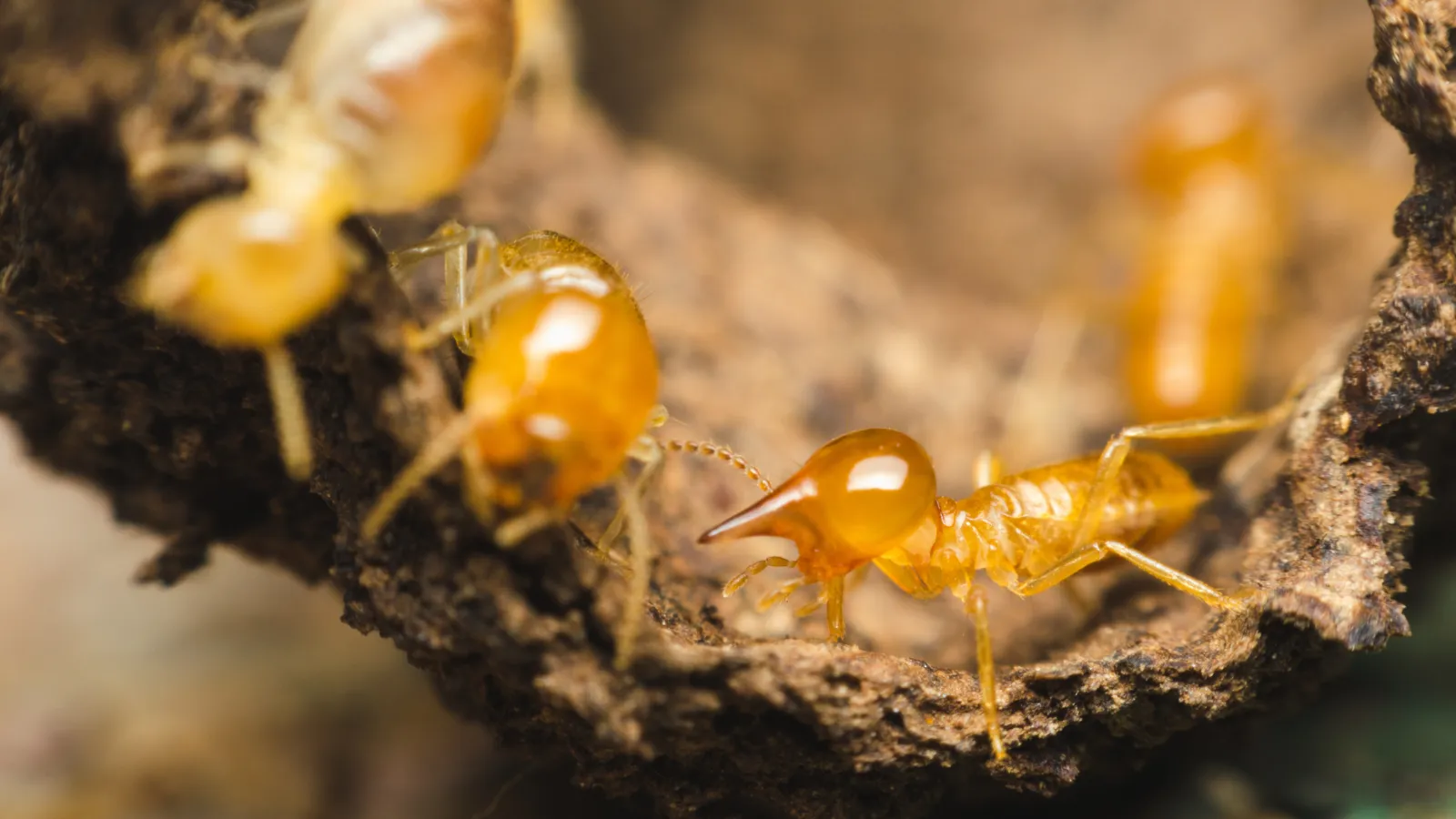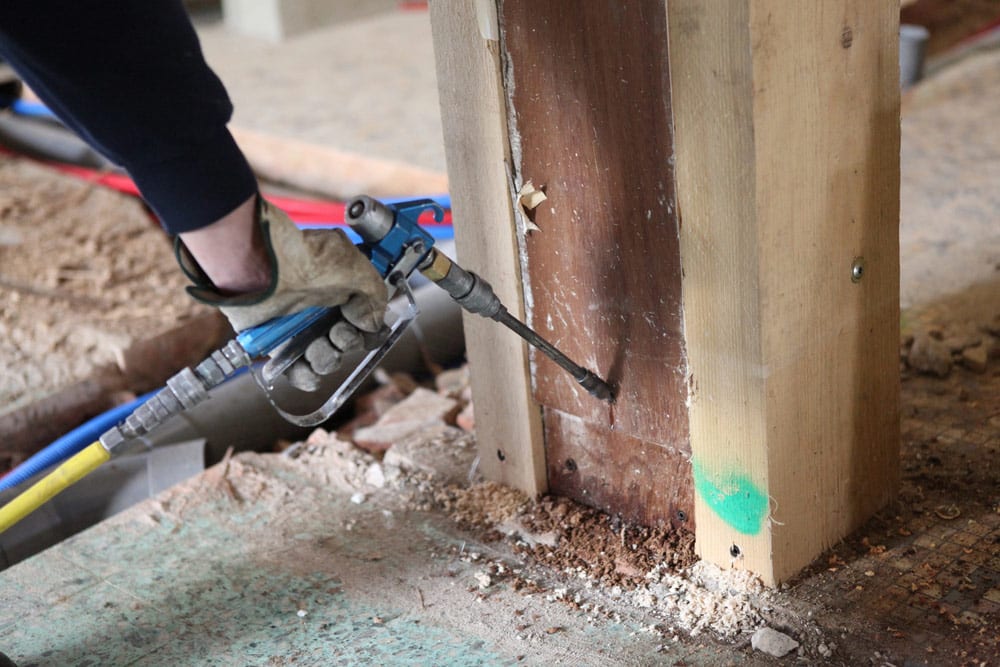Comprehensive Termite Control: Safeguard Your Property with Expert Services
Comprehensive Termite Control: Safeguard Your Property with Expert Services
Blog Article
Ecological Effect of Bug Control: Balancing Efficiency With Sustainability
The environmental effect of bug control is a crucial concern that needs a fragile equilibrium between accomplishing effectiveness in managing parasites and ensuring sustainability of our communities. As we make every effort to protect our crops, homes, and wellness from the dangers posed by pests, the methods we employ can unintentionally hurt the setting. From making use of harmful chemicals that seep right into our soil and water to the unplanned effects on non-target species, the effects of traditional parasite control techniques are significant. There are emerging methods that provide hope for a more lasting approach to pest management. These remedies not only goal to address the prompt insect issues however additionally consider the long-term wellness of our earth.
Unsafe Chemicals in Parasite Control
The application of harmful chemicals in pest control poses significant environmental and health risks that require cautious consideration and mitigation approaches. Pesticides, pesticides, and herbicides are generally used to remove bugs, yet their extensive application can bring about unplanned consequences. These chemicals can infect soil, water sources, and the air, affecting not just the targeted insects yet likewise helpful insects, wildlife, and people.

To deal with these dangers, incorporated pest management (IPM) methods are being advertised as a more sustainable choice. IPM involves a mix of techniques such as biological control, environment adjustment, and the targeted use pesticides as a last resource (ant control walkerton nc). By adopting an all natural technique to pest control, we can reduce the environmental and wellness effects associated with dangerous chemicals while effectively taking care of pest populaces
Influence On Non-Target Species
Considering the unplanned consequences of pest control methods, the effect on non-target varieties is a critical aspect that requires complete analysis. While bug control procedures intend to target particular parasites, other microorganisms in the environment might be inadvertently influenced. Non-target types, including useful insects, birds, mammals, and also plants, can experience indirect or direct injury from pesticide applications or biological control approaches.
Chemicals can have sub-lethal or dangerous impacts on non-target varieties. For instance, pesticides made to deal with a specific bug parasite may harm pollinators like bees or all-natural predators such as ladybugs. Additionally, chemical residues can collect in the environment, affecting non-target microorganisms gradually. In a similar way, biological control agents, if not species-specific, can position threats to unintended targets, interfering with the eco-friendly balance.
To mitigate the influence on non-target species, incorporated pest management (IPM) methods that emphasize an all natural method to pest control are suggested. These methods prioritize using eco-friendly practices, decreasing damage to helpful microorganisms while efficiently taking care of pest populations. Carrying out comprehensive risk evaluations and keeping track of the results of bug control efforts are important action in protecting non-target types and promoting total ecological community wellness.
Dirt and Water Contamination
Unintentional environmental repercussions of bug control techniques prolong beyond affecting non-target types, with substantial effects for dirt and water contamination - termite control. Chemicals, herbicides, and chemical plant foods made use of in pest control can leach into the dirt and pollute groundwater, posturing a danger to both aquatic and terrestrial ecological communities.
Water contamination is another important problem connected with bug control practices. Drainage from farming fields treated with pesticides can bring these chemicals right into close-by water bodies, impacting aquatic microorganisms and water high quality. Pollutants in water sources can have far-ranging consequences, impacting not only water life yet also human health through the consumption of infected water or water microorganisms. To reduce dirt and water contamination find here from insect control tasks, integrated parasite monitoring methods that prioritize sustainability and minimize chemical inputs are essential.
Air Contamination From Pesticide Use
Exposure to air-borne pesticides during farming applications positions a significant concern for air contamination control procedures. They can volatilize right into the air and form volatile organic compounds (VOCs) and various other air-borne pollutants when chemicals are splashed onto plants - ant control services. These chemicals can contribute to the development of ground-level ozone, a significant part of smog that can have damaging results on human health and wellness, plant efficiency, and total air high quality. Furthermore, pesticide drift, where pesticides are brought by the wind to unintentional areas, can cause the contamination of close-by ecosystems and water bodies.

Strategies for Lasting Pest Control
In the world of agricultural techniques, carrying out sustainable pest control approaches is vital for maintaining eco-friendly balance and securing plant yields. Lasting bug control emphasizes making use of eco-friendly techniques to take care of bug populations effectively while decreasing harm to non-target microorganisms and communities. Integrated Insect Administration (IPM) is a widely adopted method that incorporates organic, cultural, physical, and chemical control techniques to achieve lasting pest administration remedies.
One secret method in lasting insect control is promoting biodiversity within agroecosystems. By boosting all-natural adversaries of bugs, such as killers and parasitoids, farmers can decrease the demand for synthetic pesticides. Crop rotation and diversity are additionally efficient techniques to disrupt pest life process and produce less desirable conditions for pests to grow. Furthermore, utilizing pest-resistant crop selections and utilizing techniques like catch cropping can help in reducing parasite stress without depending heavily on chemical interventions. Ultimately, by integrating these lasting parasite control approaches, farmers can attain an equilibrium in between pest monitoring performance and ecological stewardship.
Final Thought
To conclude, the environmental influence of parasite control techniques should be thoroughly thought about to balance performance with sustainability. Unsafe chemicals utilized in pest control can lead to dirt and water contamination, air pollution, and damage non-target varieties - termite control. It is critical to carry out lasting pest control methods to minimize these unfavorable results on the environment and promote a much healthier environment for future generations
By adopting an alternative approach to pest control, we can decrease the environmental and health influences linked with damaging chemicals while properly managing pest populations.

To minimize the air contamination triggered by chemical use, it is essential to embrace incorporated bug management strategies that focus on the use of non-chemical insect control approaches, such as crop rotation, all-natural predators, and resistant plant selections. Sustainable bug control emphasizes the usage of eco friendly techniques to take care of insect populaces properly while reducing injury to non-target organisms and environments. Integrated Parasite Management (IPM) is a commonly taken on approach that combines biological, cultural, physical, and chemical control approaches to attain long-term bug monitoring solutions.
Report this page